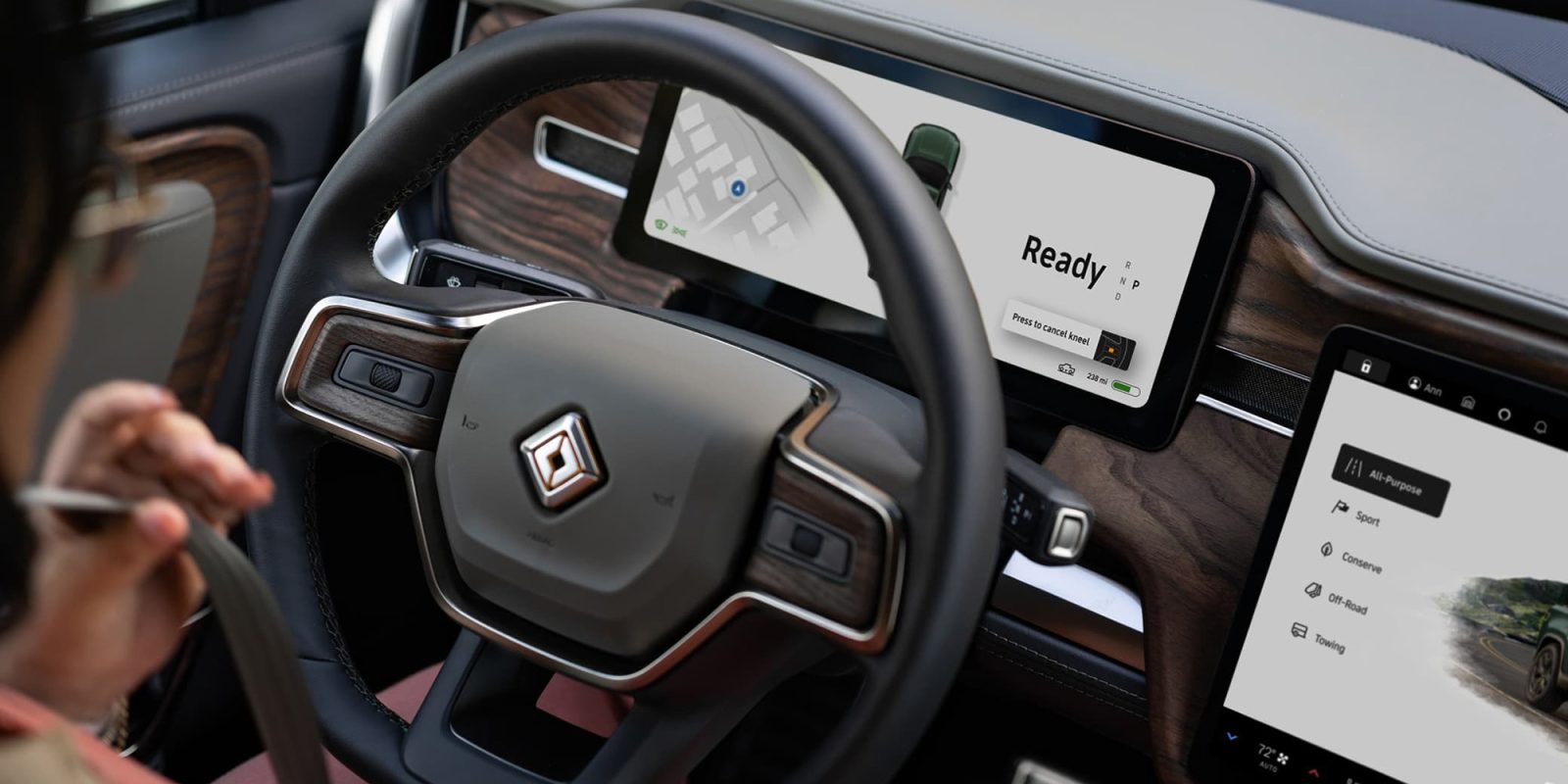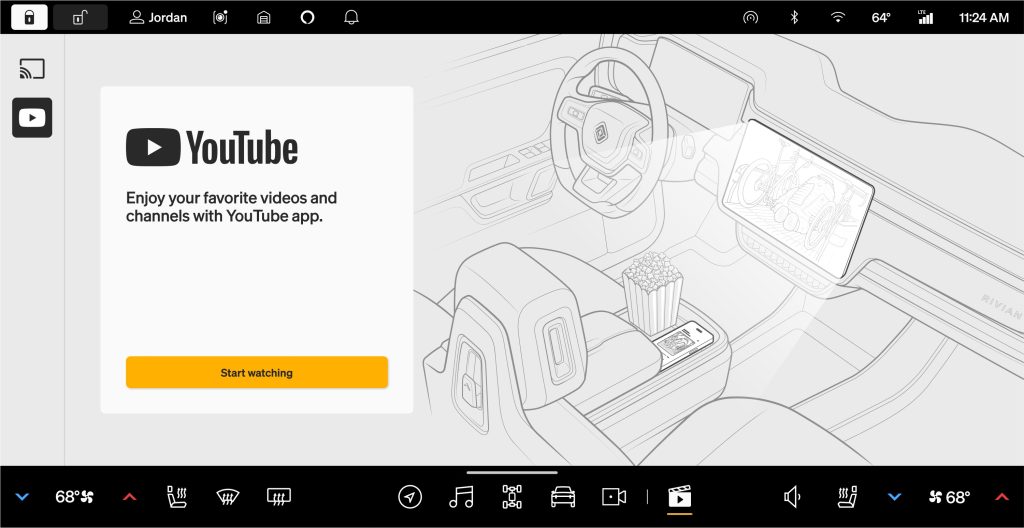
Google’s Android Automotive software has been adopted by many carmakers for the EV era, but it tends to vary between different brands. This week Google and Rivian confirmed to 9to5Google that the EV-maker uses Android Automotive as the base of its software experience, something that was previously not known.
Rivian’s operating system powers the software experience on the Rivian R1T and R1S, and will also power the upcoming R2 and R3. The platform is specific to the company’s vehicles and controls virtually of the features in the EVs.
However, it’s Android at its core.
Google this week confirmed to 9to5Google that Rivian is using Android Automotive as the “base OS” for its software. Rivian has never officially confirmed this detail, though many have suspected this is the case.
Rivian further confirmed to us that, yes, Android Automotive has been used as the base of its software since the first R1 launch.
The company also stressed that its use of Android Automotive is not the same as supporting Android Auto, and that it feels strongly about building out the owner experience in-house with integrated software and built-in apps.
Android Automotive is a platform Google has been developing for vehicles to allow the infotainment experience to be run via Android. The cars themselves effectively run on Android, and carmakers can customize the platform to a very large degree. However, they can also choose whether or not to adopt Google services, something Rivian has gone without, at least until now.
At Google I/O this week, it was announced that vehicles with Android Automotive will be getting more apps as well as Google Cast, with Cast debuting first on Rivian vehicles. Rivian will also be adding official support for the YouTube app in a coming update.
In a blog post announcing Cast and YouTube support, Rivian touts its “vertically integrated hardware and software stack” without mentioning Android Automotive OS. And that’s still true, as Android Automotive OS on its own can only do so much, and Rivian is putting a lot of work in – with many of its own software engineers, the company mentioned – to deliver the experience seen in R1 vehicles today.

What does an Android Automotive base mean for Rivian going forward? Likely not much.
Android Automotive can be highly customized by carmakers, and it’s fairly clear that Rivian’s version is customized to a degree that it isn’t easily recognizable as Android Automotive. Rivian also isn’t using Google apps and services, meaning that ongoing work to bring more Android apps to Automotive won’t directly benefit Rivian drivers.
However, having Android Automotive at its core clearly opens up the possibility that more Android apps could come to Rivian’s experience in the future, as shown with this week’s addition of Cast and YouTube. So, hopefully, we’ll see more on that in the future.
More on Android Automotive:
- Ford unveils its new Android Automotive experience, coming to 2024 vehicles [Gallery]
- Android Automotive adds Chrome app
- Porsche will adopt Android Automotive, complete with Google apps
Follow Ben: Twitter/X, Threads, Bluesky, and Instagram
FTC: We use income earning auto affiliate links. More.



Comments